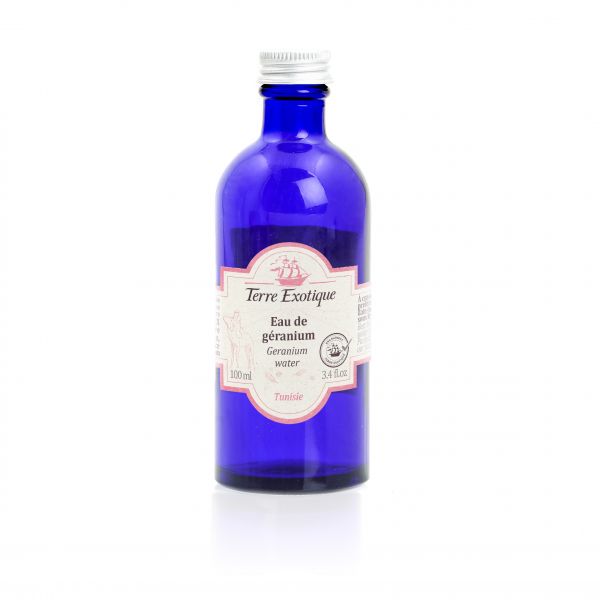



What Dishes to Use Geranium Water In?
It pairs particularly well with desserts such as sorbets, ice creams, light pastries, or your red fruit salads, bringing a refined floral touch. In savory cooking, geranium water pairs well with fish, delicate sauces, or even salads. Its use should be measured, as its fragrance can be quite intense.
Our Recipe Ideas for Using Geranium Water in Your Kitchen
- - Marinades and Sauces: Transform your marinades by adding a hint of geranium water. Its subtle fragrance enhances meats, fish, and vegetables, creating a symphony of flavors;
- - Gourmet Pastries: Incorporate geranium water into your dessert recipes, from macarons to ice creams. Its floral taste brings a sweet and fragrant dimension to your sweet creations;
- - Cocktails and Mocktails: Surprise your guests by adding a few drops of geranium water to your cocktails or mocktails;
Geranium Water, for Fans of Subtle, Floral, and Delicate Aromas
Geranium water is known for its floral and delicate aromas. Dominant notes include a characteristic floral fragrance of geranium, with slightly lemony, spicy, and sometimes herbaceous undertones. These varied aromas make geranium water a versatile ingredient in cooking, adding a subtle and refined touch to a variety of dishes.
Where Does Geranium Come From?
Geranium (Pelargonium graveolens) is a herbaceous plant native to South Africa. Its velvety leaves and delicate flowers emit an intoxicating fragrance. Geranium water is obtained by steam distillation of the aerial parts of the plant. It is rich in active compounds such as flavonoids and terpenoids. The geranium used for making its water is Pelargonium graveolens. It is an endemic species of Madagascar, also called Bourbon Geranium. It was introduced to Tunisia by the French. It is cultivated in Cap Bon (northwest Tunisia). This terroir is the same as that where orange blossom is cultivated.
How is Geranium Water Obtained?
Geranium water, or floral water: a hydrosol is an aromatic water obtained after hydrodistillation of a natural raw material (for flowers, it is also called "floral water"). It is the residual water obtained after separating it from the distillation product (essential oil or essence). The production of geranium water requires true expertise. Geraniums are harvested late (in July) to allow the flower to dehydrate as much as possible on its stem, thus increasing the concentration of essence and essential oil. When the time comes, the flower is harvested in its entirety and quickly sent for hydrodistillation.
The Origin of Geranium Water
Geranium was introduced to Europe by botanist Charles Louis L'Héritier de Brutelle in 1786. It was initially cultivated as an ornamental plant due to its attractive flowers and fragrant foliage. It has been used throughout the ages for its medicinal properties and olfactory qualities. The Egyptians used it in embalming rituals, while the Greeks employed it for its healing virtues. In the 19th century, its delicate fragrance made it a prized ingredient in perfumery and cosmetics. Geranium water has its roots in the perfumery industry. Distillations of geranium leaves began to be used to extract essential oil, but during this process, an aromatic water was also produced, giving rise to geranium water. Geranium water gained popularity in Victorian England in the 19th century. At that time, middle-class women often used geranium water in cooking to flavor foods. Today, much less common than other herbs and spices, geranium water is used cautiously in cooking, as its taste can be quite strong and overwhelm other flavors if used in excess. As with any ingredient, the key is balance to create delicious and well-balanced dishes.
| Allergen | Absence |
|---|---|
| Native country | TUNISIE |
| Genus and botanical species | Geranium roast |
| Ingredients | geranium hydrolate |
| TRACES EVENTUELLES D'ALLERGÈNES | céleri, sésame, moutarde, fruits à coques. |
 Français
Français 


